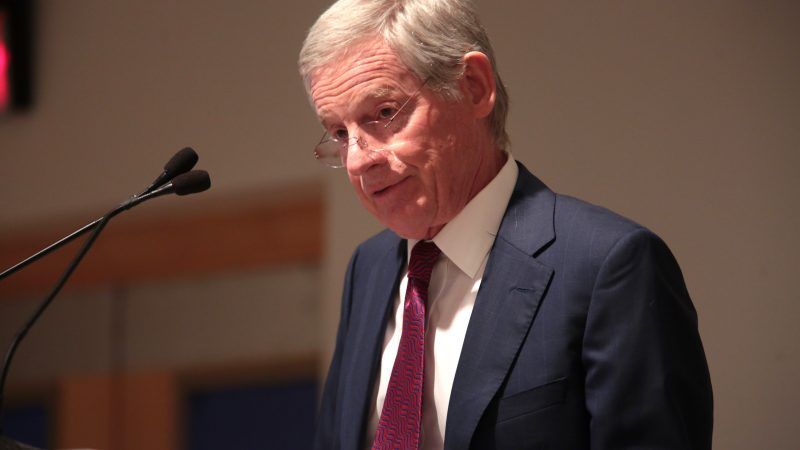Concordia University Disinvites Harvard Professor Harvey Mansfield Over His Conservative Gender Views
Administrator says they "were unable to reach consensus as to what we wanted to achieve with this event," which is pure doublespeak.

Concordia University in Canada had invited Harvard University Professor Harvey Mansfield to give the spring commencement address for its Liberal Arts College. The college's students study great books and Western thought, and Mansfield teaches these subjects, so one might think he was a good fit.
But then the university rescinded its invitation. Principal Mark Russell sent Mansfield a weaselly letter expressing regret that faculty and alumni "were unable to reach consensus as to what we wanted to achieve with this event." Russell lamented that the selection committee "acted in good faith but rather precipitously" when it invited him in the first place.
This is clearly doublespeak: Thankfully, Mansfield discovered the true explanation, which he relates in his Wall Street Journal op-ed:
What had taken place, I learned but not from him, was a faculty meeting prompted by a letter from 12 alumni that demanded a reversal of the committee's invitation because my "scholarly and public corpus … heavily traffics in damaging and discredited philosophies of gender and culture." Promoting "the primacy of masculinity," apparently a reference to my book "Manliness," attracted their ire. Though I was to speak on great books, not gender, this "trafficking"—as if in harmful drugs—disqualified me without any need to specify further. Such sloppy, inaccurate accusation was enough to move a covey of professors to flutter in alarm.
Mansfield is a political conservative, and his views on gender reflect his conservative outlook. No doubt many people would disagree with them—especially those on the hyper-woke left, whose gender-related opinions are not shared by the vast majority of the population. If this means that Mansfield should be denied a platform, then no one who has ever expressed a problematic opinion on any matter would be deemed fit to speak on campus.
Mansfield spends the rest of his op-ed theorizing about why his critics wanted him disinvited. He characterizes the new left as believing the following:
Speech is not an alternative to power but a form of power, political power, and political power is nothing but the power to oppress. A professor like me might trick gullible students and lure them to the wrong side. So it is quite acceptable to exclude speakers from the other side. Supremacy of the wrong side must be prevented by supremacy of the right side.
I don't think this is quite right. I researched the motivations of anti-speech campus actors for my forthcoming book, Panic Attack: Young Radicals in the Age of Trump (pre-order here), and generally found that their desire to shutdown conservative speakers mostly stemmed from the notion that offensive speech had the power to cause tangible emotional harm to vulnerable populations with which far-left activists sympathize. Their view would probably be that Mansfield's opinions are mentally taxing for female, queer, and transgender students—and that harming the students in this way is akin to physically harming them. Preventing Mansfield from speaking, then, is a matter of self-defense—a response to a threat of violence.
Obviously, this approach to speech is incredibly flawed, and would make it impossible to have all sorts of interesting conversations on campuses. Again, Mansfield is an incredibly intelligent and respectable scholar whose views are well within the mainstream. If Concordia's students are too timid to hear what he has to say, it's hard to imagine they are prepared to face the outside world.


Show Comments (155)